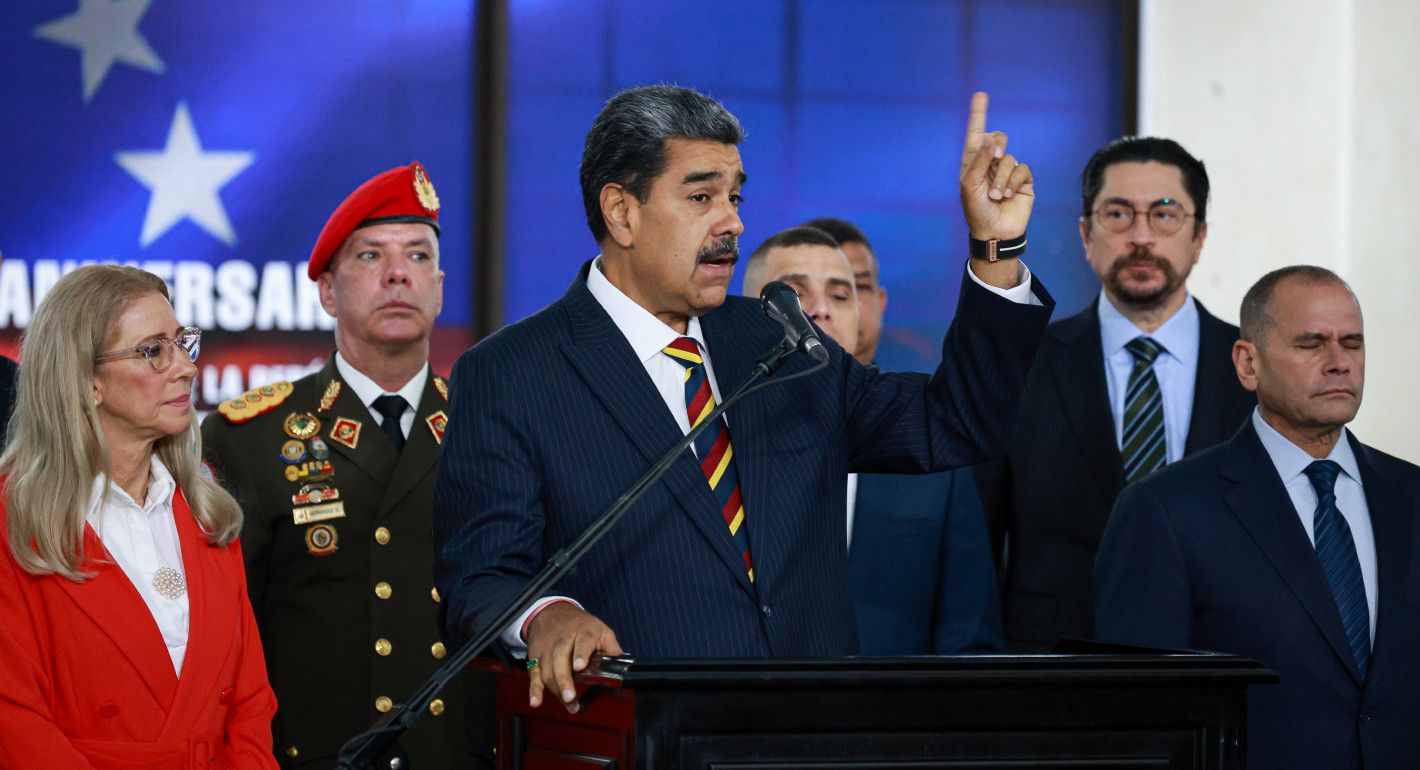Global leaders have reacted in three different ways to the overtly fraudulent elections that Venezuela’s authoritarian president, Nicolás Maduro, claims to have won on July 28, despite ample evidence to the contrary. Based on vote tallies provided by the opposition and viewed as legitimate by independent observers, Maduro won 30.4 percent of the vote, against 67.2 percent for the opposition. But according to the “official” results, Maduro—in power for more than a decade—won 51 percent of the vote.
Numerous European and Latin American countries, alongside the United States, announced that they would not recognize the official results. Chilean President Gabriel Boric said he did not recognize Maduro’s “self-proclaimed” victory. Argentina, Costa Rica, Panama, Peru, and Uruguay, among others, made similar statements or signed declarations to that effect, which led the Venezuelan regime to expel their diplomats from Caracas. The administration of U.S. President Joe Biden has recognized Edmundo González, the opposition candidate, as the winner of the election, but it has not called him president-elect.
This group’s limited influence leaves it with few options. The appetite for a renewed pressure campaign involving sanctions against Venezuela is slim, largely because a similar attempt after the 2018 sham elections may have deepened the country’s economic misery while failing to destabilize the Maduro regime. In April, the United States reimposed some sanctions, as well as a raft of individual sanctions. In addition, many in this group, particularly the United States, are concerned that broader sanctions could increase emigration. More than 7.7 million Venezuelans have left their home country because of political instability and economic hardship, and many are now in neighboring countries and the United States. The migrant crisis has become a fraught topic in several countries in the region, such as Chile and Colombia, among others.
A second group of mostly nondemocratic regimes has quickly recognized Maduro’s proclaimed victory. Many of these countries are his long-standing allies, including Cuba, China, Iran, Nicaragua, and Russia. Bolivia, Honduras, and two Caribbean island states are also part of this group.
A third group consisting of Brazil, Colombia, and Mexico has opted for a wait-and-see approach. These countries requested the voting tally sheets from Venezuela’s National Electoral Council in order to make a decision. The three also sought to facilitate a mediation between Maduro and the opposition, though chances for a meaningful dialogue are slim, as all such attempts over the past decade have failed. On August 14, Mexico removed itself from the mediation initiative, announcing that it would limit itself to awaiting the voting tally sheets.
Carnegie This Week
Understand the world with the latest from our scholars around the world.
The position of this third group explains why a July 31 resolution by the Organization of American States (OAS) urging transparency and full vote counts in the presence of international observation organizations failed to pass: although seventeen countries voted in favor, eleven—including Brazil and Colombia—abstained, and five were absent. OAS resolutions require eighteen votes (of a total of thirty-four) to pass. On August 16, a resolution that urges Venezuela’s electoral authorities to publish the election records but does not mention international observation organizations was approved by consensus.
Brazil and Colombia, which share long borders with Venezuela, have argued that severing diplomatic ties with the Maduro government—as they did in 2019, when they recognized opposition leader Juan Guaidó as the country’s legitimate president—has had little effect on the situation on the ground. It also would complicate their ability to deal with day-to-day challenges in the border region, including migration, deforestation, and illegal mining. All of these problems have grown in the context of Venezuela’s economic collapse. More recently, Brazil suggested repeating the elections with better international oversight, an idea vehemently rejected by both Maduro and the Venezuelan opposition.
The most likely scenario is that Maduro—in power since his predecessor, Hugo Chávez, died in 2013—will successfully dig in and possibly use largely symbolic negotiations with opposition figures to buy time until the international community moves on to the next crisis. The evidence that this shift is already happening is strong, given the current conflicts in Ukraine and the Middle East. The Venezuelan president’s stalling tactics over the past decade have been extraordinarily successful. Maduro has continuously moved goal posts, delayed negotiations, and convinced observers that he is willing to hold to power at all costs, even if that involves prolonging his country’s economic decline and large-scale emigration. Paradoxically, his government benefits from emigration, as it reduces the opposition’s capacity to mobilize and continuously draw crowds. After all, the majority of those who have the means to leave the country have already done so.
In addition, Maduro retains control over the armed forces, the military police force, paramilitaries, and different intelligence services. The generals in particular control important parts of the country’s economy—namely oil, which Venezuela depends on—and have little incentive to facilitate a transition of power. Solid ties to China, Russia, and a number of other allies help guarantee the regime’s survival. Although authoritarian regimes are notoriously opaque, making it difficult to identify cracks early on, there are currently no signs that Maduro won’t be able to weather yet another period of domestic pushback—and relatively tame international rebuke.







